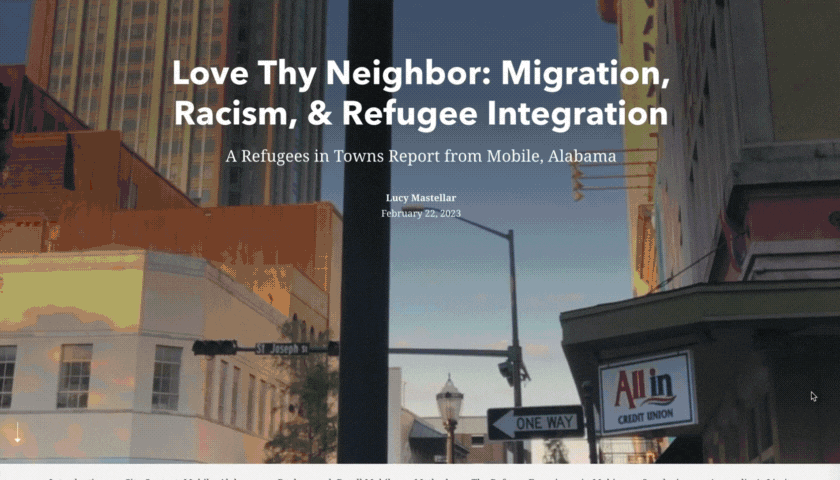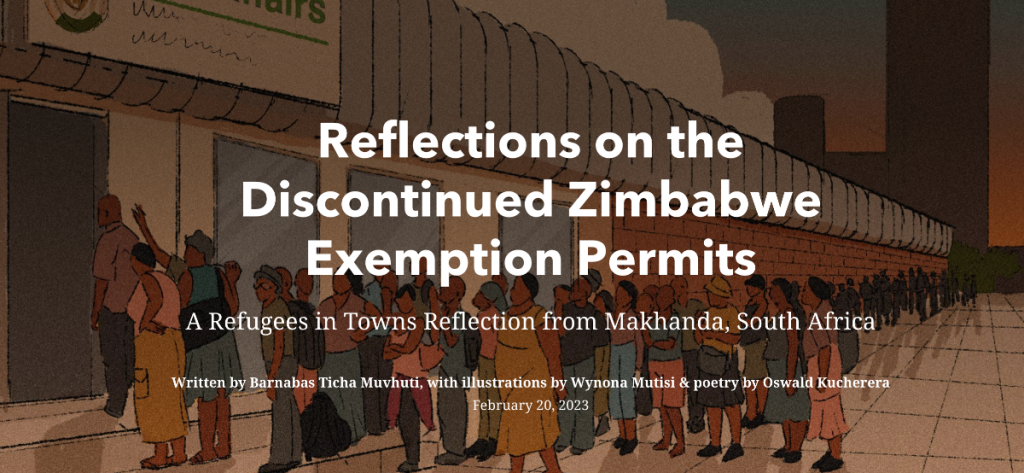Leir Migration Monitor – February 2023
Leir Migration Monitor
February 2023
As the U.S. celebrates Black Legacy Month, we are reminded of the enduring legal, political, and cultural battles for equality that Black Americans and immigrants of color face. Those battles are as different as they are alike–at times overlapping, often running parallel to one another, and occasionally, contradictory. As our featured research this month shows, even refugees of color in the U.S. are not immune to racist attitudes. And in South Africa, the “rainbow nation” and land of “ubuntu,” legal regimes and cultural attitudes have reinforced xenophobic policies. This month, we explore how conceptions of race impact immigrants’ lived experience, an area of inquiry that Leir is committed to exploring in the long-term.
In this edition:
- Case Reports: Race and Refugees in Mobile, AL and Pittsburgh, PA
- Zimbabwe Exemption Permits: Artists express hopes, anxieties as court case, end of grace period loom
- Faculty Spotlight: Dr. Karen Jacobsen, Henry J. Leir Professor in Global Migration
- CBP One: racially-biased tech further limits U.S. asylum claims
- Literature Review: How do refugees in the U.S. learn about race?
Let us know topics you would like future editions to explore.
Case Reports: Race and refugees in Mobile, Pittsburgh

Case Reports: Race and refugees in Mobile, PittsburghThe Refugees in Towns project is pleased to publish two new case reports as part of its Race and Refugees research program: Mobile, Alabama, USA and Pittsburgh, Pennsylvania, USA. Both reports explore the historical, cultural, and political contexts in addition to the lived experiences of refugees grappling with the U.S. construction of race.
Research assistants Lucy Mastellar, Yumeka Kawahara, and Charlie Williams conducted the research between June-August 2022. Their reports, conducted in partnership with the Hello Neighbor Network, have informed a second phase of research which seeks to create community-developed, anti-racist interventions to better educate and support refugees as they are resettled in the U.S.
Both reports have been adapted into StoryMaps, allowing readers to interactively explore Mobile and Pittsburgh while showcasing RIT’s reflexive and localized methodology.
Zimbabwe Exemption Permits: Artists express hopes, anxieties as court case, end of grace period loom

Originally published in September 2022, Barnabas Ticha Muvhuti’s reflection on the Zimbabwe Exemption Permits’ (ZEP) cancellation unfortunately remains relevant. In it, he writes:
“…I deeply regret that I moved to an African country that treats Africans worse than do the former colonial powers. Most of my friends are now permanent residents or citizens of these countries, while I am holding one restrictive permit after another.”
Shortly after publication and in the wake of increasing criticism, the South African government extended ZEP permit holders’ grace period by six months to June 2023. Now, as a court challenge to the cancellation is scheduled to begin in April and the end of the grace period looms, ZEP permit holders’ hopes and anxieties reach their zenith.
RIT commissioned two Zimbabwean artists living in South Africa–illustrator Wynona Mutisi and poet Oswald Kucherera–to express these sentiments in their preferred works. Their works accompany Barnabas’s reflection in the StoryMap below.
